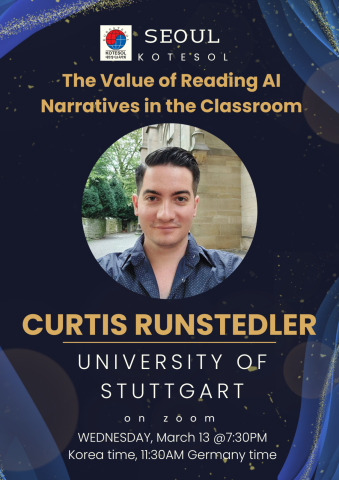
This presentation investigates how literary AI narratives depicting AI or robots, such as Kazuo Ishiguro's Klara and the Sun and Ian McEwan's Machines Like Me, can be effective critical tools for reflecting upon the impact and consequences of living in AI-dependent societies and classrooms. Such narratives can point out our shortcomings with technology, but also our ambitions and ideals of what technology can become. This presentation also examines how AI portrayals in film and the 20th-century novel can affect the ways in which we view and think about robots in the present and future, before launching into a discussion and analysis of fictional intelligent systems in contemporary English literature. Reading AI narratives in the classroom can raise awareness of the relationships between humans and robots, engender empathy for socially imagined robots, and provide ideas for collaboration and cooperative AI. In addition, the presenter posits learning strategies, such as cyber story contests and reading lists, as effective ways of encouraging student interest and engagement with AI narratives.
Dr Curtis Runstedler is a postdoctoral research fellow with IRIS Interchange Forum for Reflecting on Intelligent Systems at the University of Stuttgart. His current research investigates how literature can be used as a tool for critically reflecting on intelligent systems in 21st-century English literature. His first book, Alchemy and Exemplary in Medieval English Literature, was recently published in Palgrave Macmillan's New Middle Ages series. He has recently written on empathy and AI in Klara and the Sun and Ian McEwan's Machines Like Me. He has also written on Game of Thrones and alchemy, sympathetic werewolves in medieval romance, vampire theology and Stephen King, and more.


